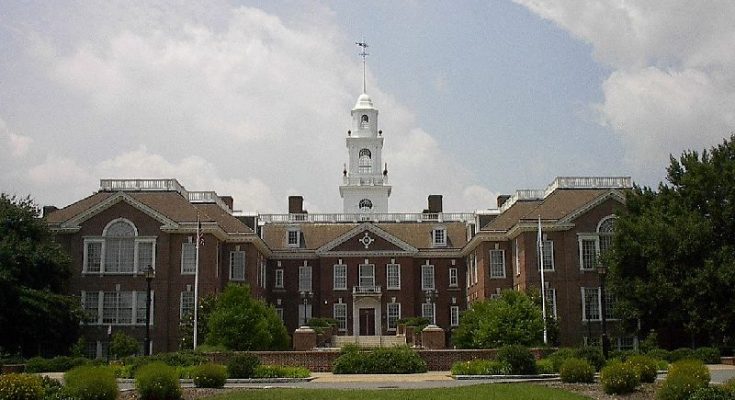A bill proposed in January by Newark State Representative Paul Baumbach could have placed limits on speech during public comment time during open meetings.
House Bill 293, originally read as follows:
“This Act requires that meetings of public bodies that are open to the public must provide an opportunity for public comment. The time for public comment may be limited if the limit is applied uniformly and public comment may be limited if it is irrelevant, immaterial, insubstantial, cumulative, or privileged. Meetings of a public body of the General Assembly are excluded from the requirement to provide an opportunity for public comment because under § 9 of Art.. II of the Delaware Constitution, the rules of proceedings for legislative meetings are established by the Senate and House of Representatives of each General Assembly. This Act also makes technical corrections to conform existing law to the standards of the Delaware Legislative Drafting Manual.”
The original synopsis did not indicate who would decide which speech is irrelevant, immaterial, insubstantial, cumulative, or privileged.
Last week on March 3, 2022, the bill’s language was amended (HS-1 for HB 293)to remove the particular line that has caused concern said State Senator Brian Pettyjohn.
There’s nothing currently in Delaware Law that requires public comment at meetings, said Pettyjohn. The Supreme Court ruled in 1984 that “The Constitution does not grant to members of the public generally a right to be heard by public bodies making decisions of policy.” Minnesota State Board for Community Colleges v. Knight, 465 U.S. 271 (1984). Pettyjohn said this bill forces public bodies in Delaware to permit a period of public comment.
House Substitute 1 for House Bill 293
House Bill No. 293 requires that meetings of public bodies that are open to the public must provide an opportunity for public comment. Meetings of a public body of the General Assembly are excluded from the requirement to provide an opportunity for public comment because under § 9 of Art. II of the Delaware Constitution, the rules of proceedings for legislative meetings are established by the Senate and House of Representatives of each General Assembly. House Substitute No. 1 for House Bill No. 293 differs from House Bill No. 293 by revising the limitations a public body may impose on public comment as follows: 1. It requires that the time for public comment provide a meaningful opportunity for the public to engage with the public body. 2. Allows a public body to impose reasonable time, place, and manner restrictions on the length of the public comment period and the amount of time allotted for each person providing public comment. This Act also makes technical corrections to conform existing law to the standards of the Delaware Legislative Drafting Manual and requires a greater than majority vote for passage because § 1 of Article IX of the Delaware Constitution requires the affirmative vote of two-thirds of the members elected to each house of the General Assembly to amend a charter issued to a municipal corporation.
Original Bill Snapshot
House Bill 293
151st General Assembly (Present)
Bill Progress
Current Status: Lieu/Substituted 3/3/22
What happens next? If original bill has not been considered in committee, the substitute takes place of original bill. If original bill has been considered in committee, the substitute will be assigned to committee for consideration.
Bill Details
View Substitute: HS 1 for HB 293
Introduced on: 1/25/22
Primary Sponsor: Baumbach
Additional Sponsor(s): Sen. Hansen, Pettyjohn
Rep. Collins
Co-Sponsor(s): Sen. Lopez, Wilson
Reps. Briggs King, Morrison, Michael Smith, Wilson-Anton, Yearick
Long Title: AN ACT TO AMEND TITLE 29 OF THE DELAWARE CODE RELATING TO PUBLIC COMMENT AT OPEN MEETINGS.
Original Synopsis: This Act requires that meetings of public bodies that are open to the public must provide an opportunity for public comment. The time for public comment may be limited if the limit is applied uniformly and public comment may be limited if it is irrelevant, immaterial, insubstantial, cumulative, or privileged. Meetings of a public body of the General Assembly are excluded from the requirement to provide an opportunity for public comment because under § 9 of Art.. II of the Delaware Constitution, the rules of proceedings for legislative meetings are established by the Senate and House of Representatives of each General Assembly. This Act also makes technical corrections to conform existing law to the standards of the Delaware Legislative Drafting Manual.

